
 Pope commemorates 70th anniversary
Pope commemorates 70th anniversary
of Rome's LUMSA University

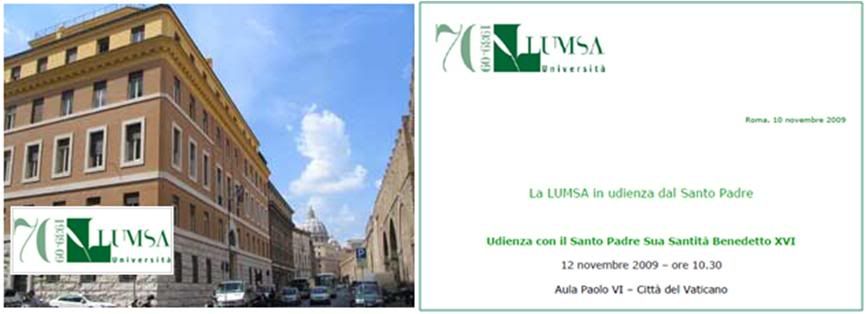
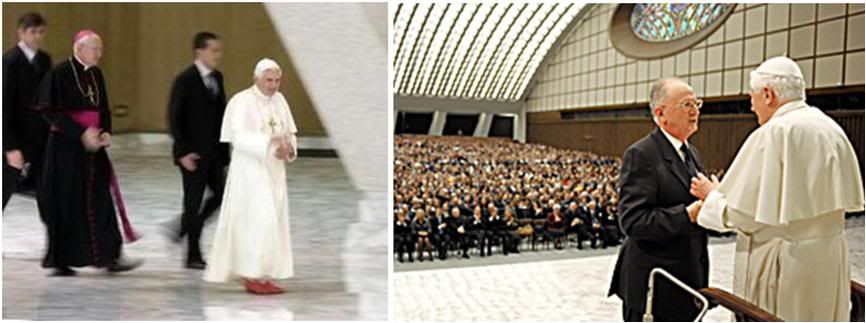
Vatican City, Nov 12, 2009 (CNA).- In commemoration of the 70th anniversary of the foundation of Rome’s LUMSA university (Libera Universita Maria Santissima Assunta). the Holy Father received 7,000 members of the institution at the Aula Polo VI today.
Acknowledging the university's well-defined Catholic identity, he called them on to a further “dialogue between faith and reason, in an ideal attempt to integrate knowledge and values.”
The Pope noted that the university came into being as a result of Pope Pius XI's Encyclical
Divini illius Magistri and began its activities in the climate of commitment to education inspired by the encyclical. He told his audience that their university began “with a well-defined Catholic identity, also with the encouragement of the Holy See with which it maintains very close ties.”
Pope Benedict also told the members of the university that the LUMSA’s dual focus, that of “remaining faithful to the original idea of [foundress] Mother Luigia Tincani and, at the same time, responding to the new challenges of society” is still necessary today.
The Pontiff added that the task of teaching is of critical importance, since “any profession can become an occasion to bear witness to values that were absorbed during the academic period, and to translate them into practice."
Then Pope Benedict emphasized the transcendent nature of universities and their studies, which don’t have their end simply in the acquisition of knowledge. “Today, as yesterday, the university needs true masters capable of transmitting, alongside academic information and knowledge, rigorous research methods and profound motivations.”
Commending the university itself for its dedication to the ideals upon which it was founded, The Holy Father said, “LUMSA is a Catholic university which has this Christian inspiration as a specific element of its identity… it aims to undertake academic activity oriented towards the search for truth, in a dialogue between faith and reason, in an ideal attempt to integrate knowledge and values.”
The Holy Father concluded by calling on the students to maintain their “hearts and minds open to the truth” in order to become “builders of a more just and united society.”
[The story does not mention that LUMSA's Faculty of Jurisprudence honored Cardinal Joseph Ratzinger in November 1999 with a Doctor of Laws, honoris causa. I know I have at least one picture of that event but I can't find it.]
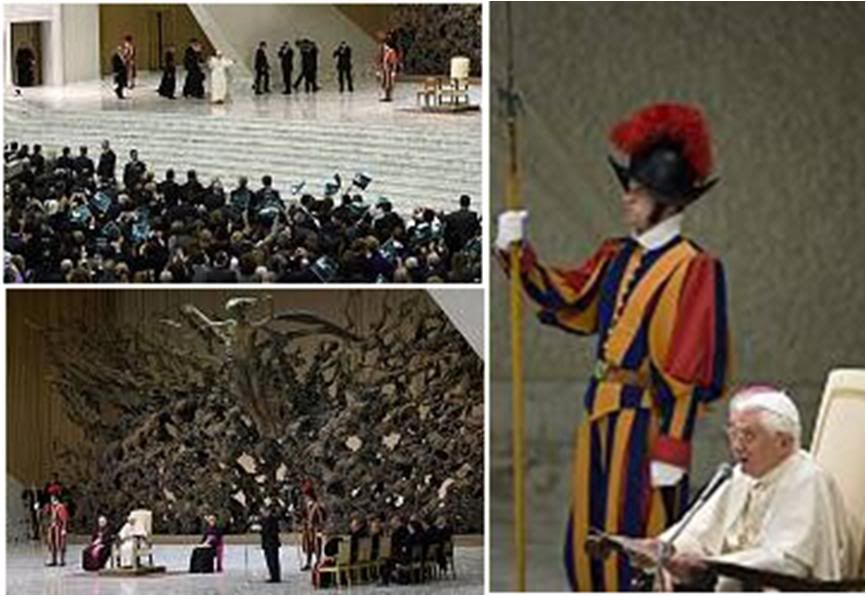 Here is a translation of the Holy Father's address
Here is a translation of the Holy Father's address:
Eminent Cardinals,
Mr. Senate President and distinguished officials,
Rector Magnificus and dear Professors,
Dear Missionaries 'della Scuola' [a congregation of teaching sisters],
Dear students and friends:
I am very happy to meet you on the occasion of the 70th anniversary of the founding of the Libera Università Maria Santissima Assunta.
I greet the rector of your university, Prof. Giuseppe Della Torre, and I thank him for his kind words.
It is my pleasure to greet the President of the Senate, the Hon. Renato Schifani, and the other Italian civilian and military authorities, as well as all the many personalities, rectors and administrative directors who are present.
To all of you who make up the great family of LUMSA, I extend my warm welcome.
Your university, which began in 1939 through the initiative of the Servant of God Mother Luigia Tincani, founder of the Unione Santa Caterina da Siena delle Missionarie della Scuola, and of Cardinal Giuseppe Pizzardo, who was then Prefect of the Congregation for Seminaries and Universities, was founded for the purpose of promoting an adequate university formation for religious sisters destined to teach in Catholic schools.
Your university was therefore born with a well-defined Catholic identity, also in conjunction with the intentions of the Holy See, with which it keeps a close connection.
In the past 70 years, LUMSA has prepared ranks of teachers, and has developed remarkably, especially after 1989, when it became a Free University, with the creation of new faculties and the widening of its student base.
I know that today it has some 9,000 students in its four locations in Italy and that it represents an important reference in the educational field.
As the cultural and legislative situation in Italy and Europe has been undergoing profound changes, LUMSA has continued its growth attentive to two things: to remain faithful to the original intuition of Mother Tincani and, at the same time, to respond to new challenges in society.
The context today is characterized by a worrisome educational emergency, on which I have dwelt on several occasions, to which the task of those who are called to teach has a very specific relevance.
Especially so with university professors, but also with the formative itinerary itself of those who are preparing to be teachers in the various academic levels, or professionals in other sectors of society.
In fact, every profession is an occasion to testify to and translate into practice the values that are personally internalized during the academic years.
The profound economic crisis throughout the world, and the causes of its origin, have shown the need for a more decisive and courageous investment in the field of knowledge and education as a way to respond to the numerous open challenges and to prepare the young generations to build a better feature (cfr Enc. Caritas in veritate, 30-31; 61).
Here then is where one notes the need to create in the educational field thought linkages, with collaboration among disciplines so they can learn from each other.
In the face of the great changes that are under way, it is therefore increasingly urgent to call on those fundamental values that must be transmitted as an indispensable patrimony to the new generations, and therefore to ask ourselves what these values are. Thus, academic institutions are faced with pressing questions of an ethical character.
In this context, Catholic universities are entrusted with a relevant role, one that is faithful to their specific identity and to the effort to render qualified service to the Church and to society.
In this sense, the indications offered by my venerated predecessor John Paul II in his Apostolic Constitution Ex corde ecclesiae are even more relevant, exhorting the Catholic university to institutionally guarantee the Christian presence in the academic world.
In the overall social and cultural reality, the Catholic university is called on to act with Christian inspiration both by individuals and by the university community as such; with incessant knowledgeable reflection, illuminated by faith, and scientific research; with fidelity to the Christian message as the Church presents it; and with institutional commitment to serving the people of God and the human family in their journey towards the final goal (cfr No, 13).
Dear friends, LUMSA is a Catholic university which has Christian inspiration as a specific element of its identity. As its Magna Carta says, it offers scientific work oriented to a search for the truth in the dialog between faith and reason, in an ideal tension towards the integration of knowledge and values.
At the same time, it envisions formative activities to be conducted with constant ethical attention, while elaborating positive syntheses between faith and culture, and between knowledge and wisdom, for the full and harmonious growth of the human being.
This imposition is for you, dear professors, stimulating and demanding. Indeed, as you work to be even more qualified for teaching and research, you must also cultivate the educational mission itself.
Today, as in the past, the University needs true teachers, who transmit, along with scientific facts and knowledge, a rigorous method of research, with profound values and motivations.
Immersed in a fragmented and relativistic society, you, dear students, must always keep your minds and hearts open to the truth. Dedicate yourselves to acquiring, in a profound way, all the knowledge that goes into the integral formation of your personality, to refine your capacity for searching out truth and goodness during your whole life, and to prepare you professionally to become builders of a more just and brotherly society.
May the example of Mother Tincani foment in everyone the commitment to accompany rigorous academic work with an intense interior life sustained by prayer.
May the Virgin Mary, Seat of Wisdom, guide your journey with the true wisdom that comes from God.
I thank you for this most welcome encounter, and from the heart, I bless each of you and your work.
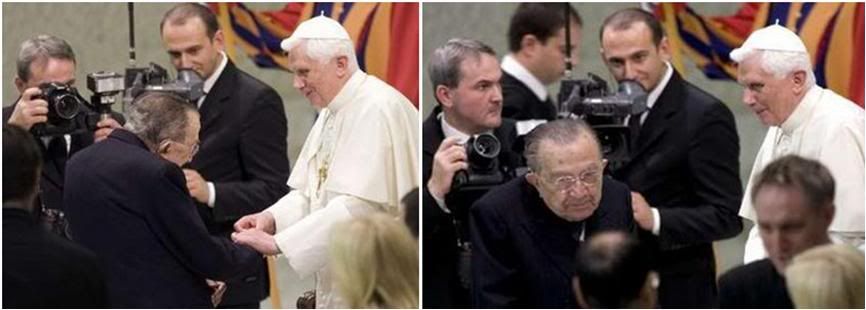 In the pictures above, the Pope greets Senator-for-life Giulio Andreotti, who is also publisher-editor of the magazine 30 GIORNI.
In the pictures above, the Pope greets Senator-for-life Giulio Andreotti, who is also publisher-editor of the magazine 30 GIORNI.
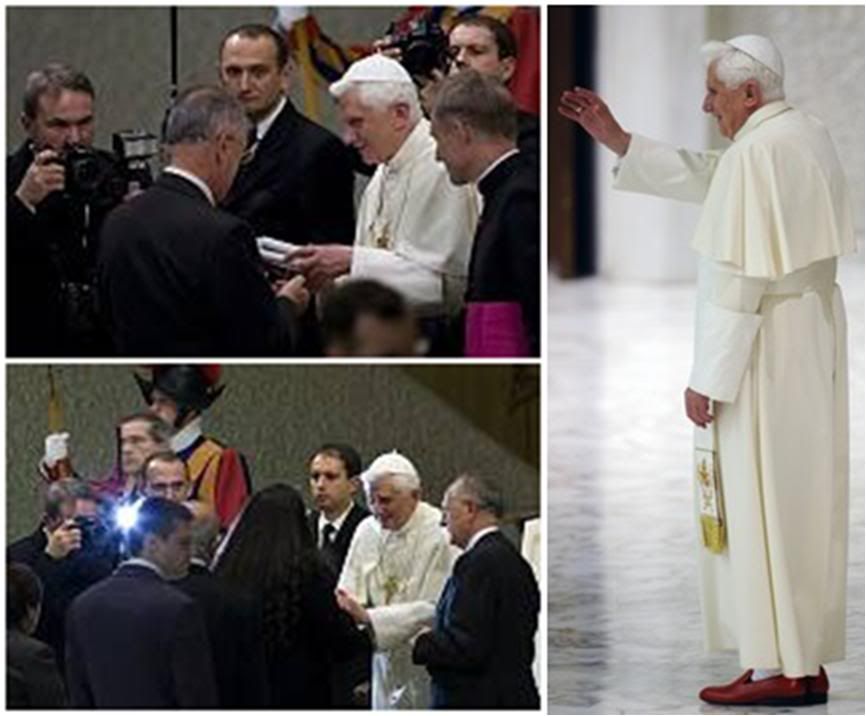
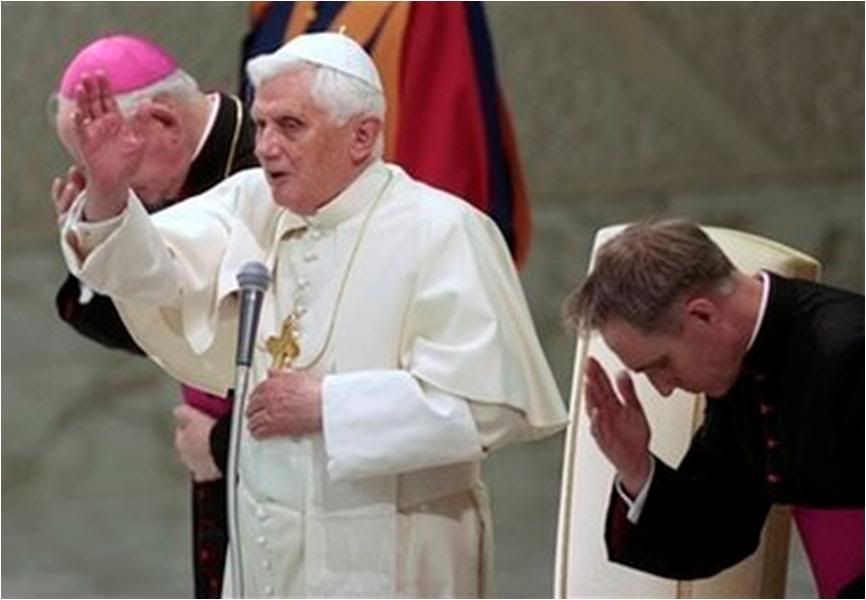
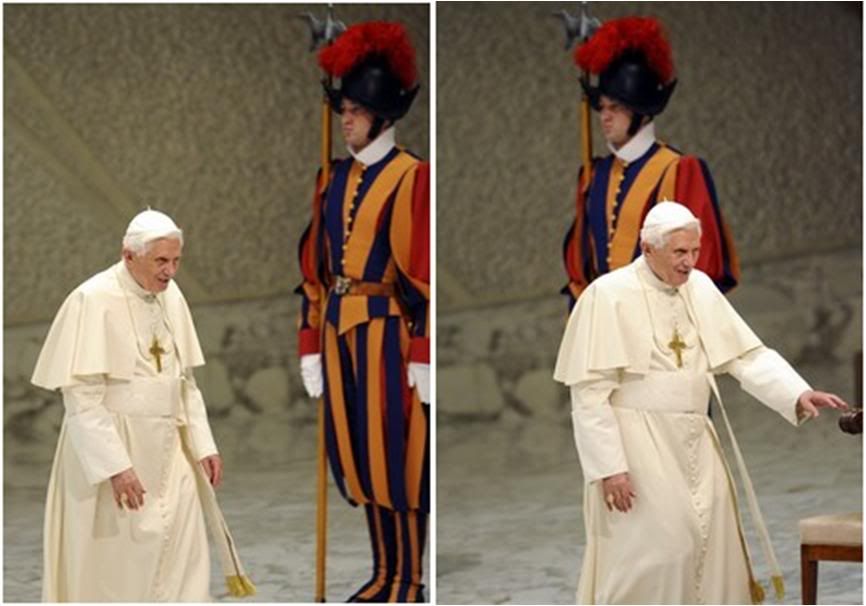
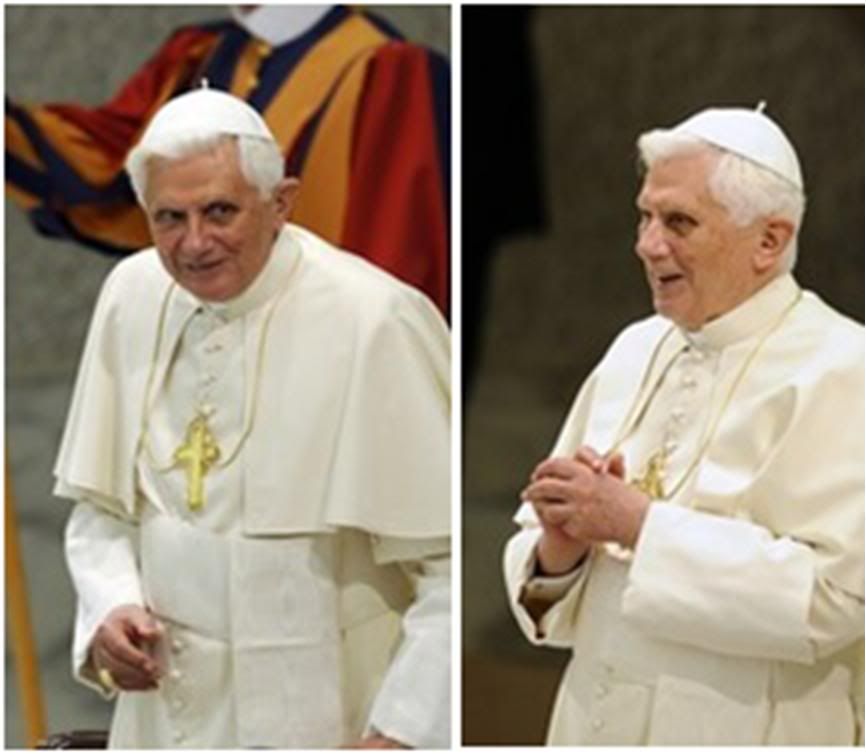
[Modificato da TERESA BENEDETTA 14/11/2009 05:16]